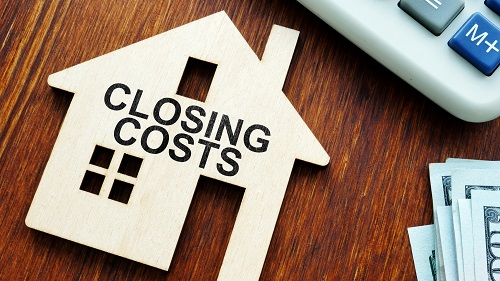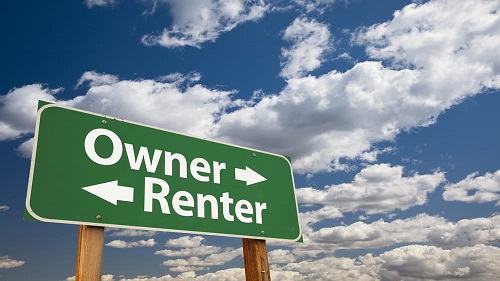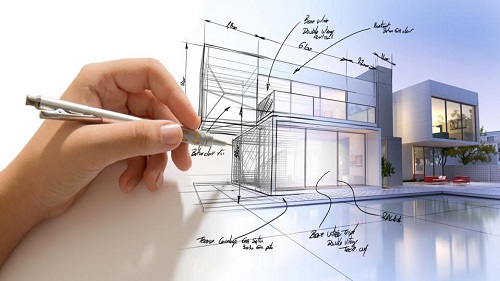
Mortgage Dove
What are Closing Costs in Real Estate?
The down payment isn't the only thing you need to prepare when purchasing a home. You also have closing costs to pay your lender to obtain their loan services. Many first-time homebuyers do not realize how much they'll have to shell out for closing costs. The amount may be overwhelming for some, but there are ways to reduce the amount you'll have to pay.
Understanding the closing costs can be a bit challenging. In this article, we will discuss what you should know about closing costs before signing off on your loan. We'll also offer some tips to reduce the closing costs amount.
What are the closing costs for the buyer?
Closing costs are expenses that go beyond the cost of the property, which buyers and sellers typically must pay to complete a transaction.
Fees included in closing costs:
1. Loan origination fees. They include processing and underwriting loans. These fees generally range from 0.5%-1% of the loan amount. Underwriting is a part of the loan approval process that determines whether you're eligible to repay the loan on various factors including credit history.
2. Appraisal and survey fees. An appraisal and survey determine the fair market value of the house. Costs for these services could differ, but they are typically hundreds of dollars.
3. Title insurance. The policies that guarantee the property is transferable legally. It is calculated based on the purchase price and serves as protection for the lender and buyer.
4. Homeowners insurance. The first year is typically paid in the closing.
5. Private Mortgage Insurance (PMI). When your deposit is lower than 20%, you might have to pay private mortgage insurance, which protects the lender from losses if you fail to repay the loan.
6. Mortgage points. Mortgage points, also known as discount points, are directly paid to the lender at the time of closing in exchange for a reduced cost of your mortgage interest rate.
7. Property tax. Typically, six months of advance tax is due at closing. Taxes differ by location. After the loan closes, the property could be reassessed, and its value could increase with the real estate tax. Escrow funds may also have to be adjusted to ensure the funds are sufficient to cover any tax increase.
8. Escrow fee or closing. This is for the escrow agent who assists you. Although it may vary depending on the escrow firm and the property's location, it usually ranges from 1%-2% of the sale price.
9. Attorney fee. Certain states require you to employ an attorney. Their fees could be included in closing costs or paid separately.
10. Courier fee. If you're signing papers, this will expedite the transportation of these documents. If closings are done electronically, you won't have to be required to pay the fee.
11. Credit report fee. Ranging from $15-$30, this fee can make the lender obtain your credit reports from the three major credit bureaus. Some lenders do not have to charge this amount due to discounts they receive from reporting agencies.
12. Flood determination and monitoring fee. It is paid to a professional flood inspector to determine if the property is within the flood zone and needs flooding insurance (separate from the homeowner's insurance).
13. Homeowner association transfer fee. If you purchase a condo, townhouse, or other property in a planned development, you may have to join the community's homeowners association (HOA). This fee covers the changing ownership, including updating documents. It is best to check the clause stating whether the buyer or seller pays the fees. The seller must provide documents with HOA dues, copies of the annual financial statement, notices, and minutes.
14. Lead-based paint inspection. It is payable to a licensed inspector to determine whether the building is contaminated with lead-based paint.
15. Pest inspection. It covers the costs of a professional inspection for dry rot, termites, or other similar damages. Some states and government-insured loans require this.
16. Prepaid daily interest charges. This covers the accrued interest of your loan from the time of closing until the first payment.
17. FHA mortgage insurance premium. FHA loan requires an upfront mortgage insurance premium (UPMIP) which is 1.75 % of the loan's base amount due at the time of closing (or added into the mortgage). There's also an annual MIP fee paid monthly, which can vary between 0.45%-1.05% based on the loan's term and the base amount.
18. Rate lock fee. It is an optional cost imposed by the lender in exchange for providing you with a certain amount of interest for a specific time from the point you are granted preapproval to closing. It safeguards you from a sudden increase in interest rates.
19. Recording fee. It is a cost imposed by the local recording office for public land records.
20. Tax monitoring and tax status research fees. Third-party fees are used to monitor the tax payment for your property and inform lenders about problems related to your property tax payments like late or failed payments.
21. Title search fee. These are paid by the title company to review the public property records. The title company will search the records to ensure there aren't any outstanding title disputes or liens against the property.
22. Transfer tax. It is a tax imposed by the local or state government to transfer ownership from the seller to the buyer.
23. Veterans Affairs funding fee. For those with VA loans, this fee offsets the program's costs to U.S. taxpayers. The amount you pay is contingent on your military class and loan amount. It can be paid upon closing or added to your mortgage. Certain military members are exempted from the fee.
The lender is legally required to list these expenses in a loan estimate form within three working days of a home loan application. Gifts of equity (real estate sales to relatives or friends at below-market price) could also be subject to closing costs.
How much are closing costs in real estate?
The closing costs could comprise approximately 3%-6% of the loan. If you get a mortgage of $200,000, expect closing costs to range from $6,000 to $12,000. The closing costs do not include the down payment but they can be negotiated. The seller may cover a part or all of the closing costs. Remember that your negotiation power will depend on the kind of market you are in.
What are the Average Closing Costs By State?
Closing states vary according to state, but here is a data from ClosingCorp to help you determine the average closing costs by state:
|
State |
Average Closing Costs (with Taxes) |
Average Closing Costs (without Taxes) |
|
Alabama |
$2,370.78 |
$2,141.32 |
|
Alaska |
$3,442.08 |
$3,442.08 |
|
Arizona |
$4,190.34 |
$4,190.34 |
|
Arkansas |
$2,578.04 |
$2,053.18 |
|
California |
$6,878.85 |
$5,366.36 |
|
Colorado |
$3,658.59 |
$3,590.71 |
|
Connecticut |
$7,302.98 |
$3,643.25 |
|
Delaware |
$17,727.42 |
$3,686.87 |
|
Florida |
$8,213.44 |
$4,147.03 |
|
Georgia |
$3,610.38 |
$2,700.63 |
|
Hawaii |
$7,126.99 |
$5,599.56 |
|
Idaho |
$3,543.68 |
$3,543.68 |
|
Illinois |
$6,529.74 |
$4,893.99 |
|
Indiana |
$2,100.62 |
$2,100.62 |
|
Iowa |
$2,272.18 |
$2,020.50 |
|
Kansas |
$2,548.34 |
$2,548.34 |
|
Kentucky |
$2,229.03 |
$2,069.06 |
|
Louisiana |
$3,827.04 |
$3,502.04 |
|
Maine |
$3,761.35 |
$2,618.58 |
|
Maryland |
$11,709.74 |
$3,825.82 |
|
Massachusetts |
$7,035.04 |
$4,434.06 |
|
Michigan |
$4,210.71 |
$2,844.73 |
|
Minnesota |
$3,842.64 |
$2,427.46 |
|
Mississippi |
$2,578.12 |
$2,578.12 |
|
Missouri |
$1,571.05 |
$1,571.05 |
|
Montana |
$3,020.65 |
$3,020.65 |
|
Nebraska |
$2,714.81 |
$2,152.23 |
|
Nevada |
$5,585.68 |
$3,870.60 |
|
New Hampshire |
$8,039.46 |
$2,724.97 |
|
New Jersey |
$7,827.87 |
$4,029.69 |
|
New Mexico |
$2,824.85 |
$2,824.85 |
|
New York |
$13,261.67 |
$5,571.32 |
|
North Carolina |
$2,802.91 |
$2,260.63 |
|
North Dakota |
$2,381.24 |
$2,381.24 |
|
Ohio |
$3,319.45 |
$2,772.13 |
|
Oklahoma |
$2,942.99 |
$2,561.16 |
|
Oregon |
$3,910.88 |
$3,545.83 |
|
Pennsylvania |
$9,437.44 |
$3,044.98 |
|
Rhode Island |
$4,618.81 |
$2,979.96 |
|
South Carolina |
$3,268.96 |
$2,331.87 |
|
South Dakota |
$2,276.02 |
$2,023.50 |
|
Tennessee |
$3,790.39 |
$2,584.15 |
|
Texas |
$3,753.65 |
$3,753.65 |
|
Utah |
$4,612.20 |
$4,612.20 |
|
Vermont |
$5,946.84 |
$3,038.06 |
|
Virginia |
$6,185.83 |
$3,357.78 |
|
Washington |
$11,513.23 |
$4,205.82 |
|
Washington, DC |
$29,329.89 |
$6,250.20 |
|
West Virginia |
$3,352.29 |
$2,405.02 |
|
Wisconsin |
$3,221.17 |
$2,456.08 |
|
Wyoming |
$2,572.39 |
$2,572.39 |
The law requires lenders to provide a loan estimate with the closing cost for the transaction. Under the federal Real Estate Settlement Procedures Act (RESPA) , they must disclose this information within 3 days of accepting the borrower's loan application. At least three days before the closing, the lender must also provide a closing disclosure statement that outlines the closing costs. The listed fees may vary from the loan estimate.
How do I calculate the closing costs?
The average closing cost is between 3%-6% of the loan amount, so include them in your budget when looking for a house. Be sure to inquire with your real estate agent and lender regarding the property taxes in your area and any additional fees that may be required by your state.
Who pays closing costs in real estate?
T ypically, the buyer is the one to pay for most of them, but sellers are also responsible for the closing cost. You may bargain with the seller to help pay for the closing costs referred to as seller concessions. It can be very useful if you are worried that you will struggle to find the funds needed to close. There are limitations on the amount sellers are allowed to contribute to closing expenses. Sellers are limited to contributing up to a specific percentage of your mortgage's value and vary depending on the type of loan, occupancy, or down payment.
Conventional Loans
Below is an overview of the seller concessions for the conventional loan. Percentages shown are dependent on the amount of the purchase price or appraised value, whichever is lower.
Primary residences:
- A down payment of 25% or more: 9%
- A down payment of 10%-24.99%: 6%.
- A down payment of less than 10%: 3%
Second-homes:
- A down payment of 25% or more: 9%.
- A down payment of 10%-24.99%: 6%.
- For investment properties, the maximum seller concessions for any down amount is 2%.
FHA Loans
The contribution limit is 6%, based on the lower appraised value and the purchase price.
VA Loans
VA loan seller concessions adhere to different rules based on what they're being applied. The maximum is 4% of the purchase price or the appraised value (whichever is lower) may be applied to the escrow accounts (homeowner's insurance and prepaid taxes) and any VA financing fee requirement.
The seller may provide unlimited funds for discount points, origination costs, survey, appraisal, and credit report costs. Seller concessions for items like the jumbo loan could differ from lender to lender.
What is the best time to pay the closing cost?
For the majority of home loans, you'll be responsible for closing costs when you go to the closing meeting. At the time of closing, your lender will accept your down payment and any additional funds you'll be required to cover closing expenses.
What are the ways to reduce closing costs for buyers?
1. Shop around
It is possible to save money on closing costs if you compare the fees charged by lenders. It is also not necessary to choose the title firm, pest inspector, or even the home insurance that the lender recommends. It's worth asking for quotes to reduce your closing costs.
2. Pay your closing at the end of the month
The closing date close to or at the end of the month will reduce prepaid daily interest charges. A lender can test this scenario to calculate the amount you could save.
3. Seek help from the seller
It is possible to negotiate with a seller to reduce the purchase price or pay a portion (or the entire amount, if lucky) of the closing costs. It is possible if the home has been on the market for quite a long time and has received only a few offers. In some hot housing markets, conditions favor sellers. You could receive a resounding "no" as a response, but it's always good to inquire.
4. Review the loan estimate and closing disclosure forms
If you receive the initial loan estimate, review it thoroughly. If you're unclear about the fee inclusions or why you have to pay for them, seek clarification from the lender. If a lender cannot explain the fees or avoids answering your queries, that is a warning sign.
If you also notice new fees or surprising increases in certain closing costs and charges, you should ask your lender to guide you through the specifics. It's not unusual for closing costs to vary from preapproval to closing, but large jumps or unexpected increases should be analyzed.
5. Add closing costs to your mortgage
In certain instances, lenders may provide you with the option of paying your closing costs or rolling these into the loan. If you add your closing costs to your loan, you'll have to pay higher interest on your mortgage.
6. Real estate commissions
The real estate commission refers to a fee that sellers pay their agents at the time of the sale. Sellers could bargain the fee before they put their property for sale.
Mortgages with No Closing Costs: A Special Consideration
No-closing-cost mortgages remove many but not all charges for the buyer at closing. These mortgages are beneficial when you're in a cash crunch but are typically accompanied by more expensive interest. The lender might also incorporate your closing expenses into the mortgage, however, it means you'll have to pay more for the loan and be required to pay interest on these closing costs in the future.
The Bottom Line
Processing fees are what you pay your lender at the time you close the loan. The closing costs of mortgage loans usually amount to 3%-6% of the total loan balance. Attorney's fees, appraisal fees, and inspection fees are some examples of typical closing costs.
The exact closing costs you'll be charged depend on the kind of loan you've got, the home value, and the state laws. Sellers might also have to pay closing costs based on the sale agreement.
There is a chance to cut down on your closing costs by bargaining with the lender. You could also negotiate with your seller to take a share of your closing expenses or get a no-closing-cost loan. In addition to the funds, you should examine everything you need to bring to the closing.
"Mortgage Dove makes home financing convenient for every American. You can count on us to provide a home buying experience tailored to your personal needs and financial situation. We strive to give you the peace of mind that your home financing goals can be achieved.”

Mortgage®
www.mortgagedove.com



